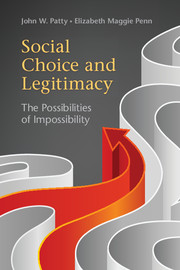8 - Legislative Legitimacy and Judicial Review
Published online by Cambridge University Press: 05 August 2014
Summary
When considering legislative policymaking, legitimacy is important in two related ways. First, most statutes are generally applicable: there is no guarantee of fit between the requirements of the statute and the facts of each and every covered case. Furthermore, many statutes derive their ability to impact policy outcomes through potentially coercive methods: failure to behave in accordance with the statutory provisions can result in various forms of punishment. In such cases, and as discussed in Section 4.1, the legitimacy of the statute is at best imprecisely gauged through observing compliance. The state's authority, which may be based simply on sufficient strength, can substitute for legitimacy of its policies in eliciting “deferential” behavior by the governed.
Second, legislatures are collective bodies – the statutes they enact are not necessarily transparent in either their consequences or motivations. As the extent of public law and the impact of statutes on everyday life have each grown over the past two centuries, the importance of judicial review – for both verification and explication of the purposes and justifications of legislative action – has concomitantly expanded as well. Thus, while the legitimacy of enigmatic legislative pronouncements is inherently suspect, modern judicial review is theoretically well suited to render both origins and implications of statutes scrutable to the governed.
- Type
- Chapter
- Information
- Social Choice and LegitimacyThe Possibilities of Impossibility, pp. 131 - 146Publisher: Cambridge University PressPrint publication year: 2014



